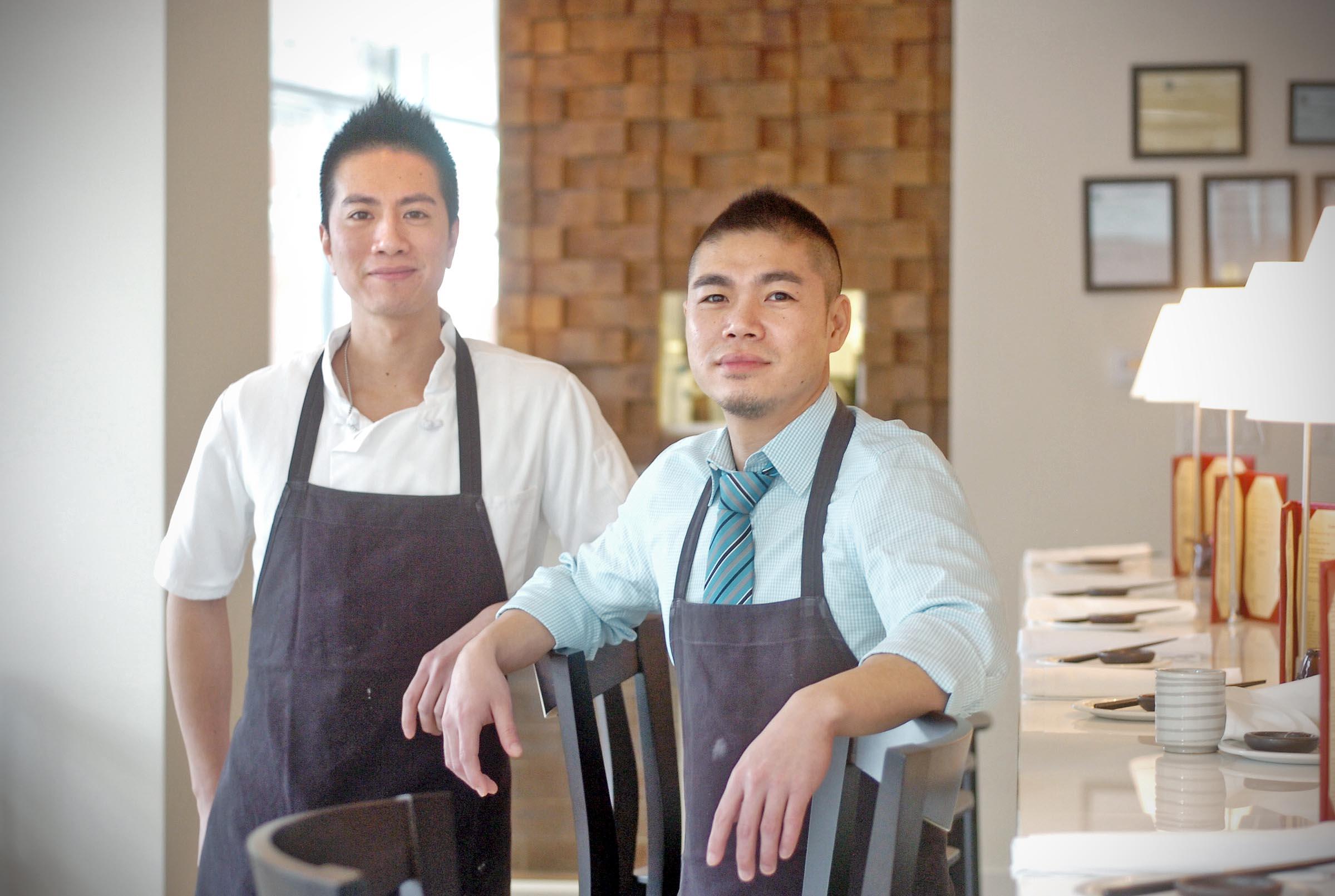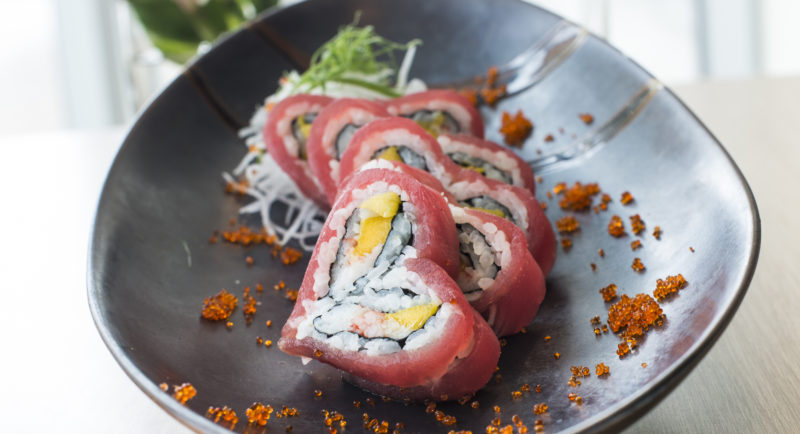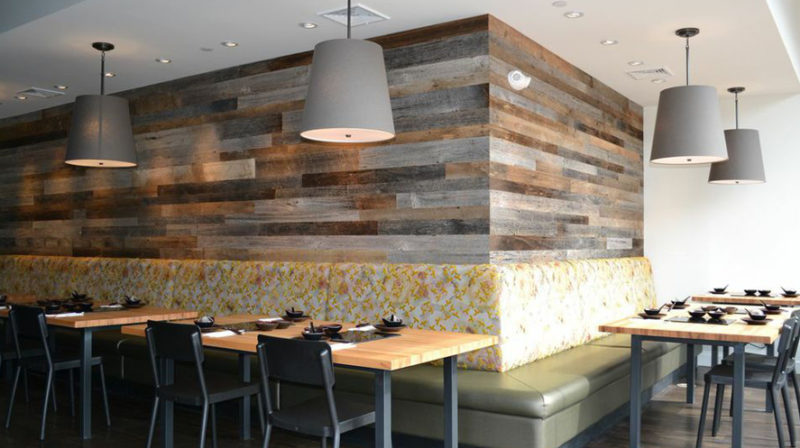

Serial entrepreneurship. These are two words that come to mind when I think of Jimmy Liang, owner of Fuji Group, a thriving nine (soon to be 11) location restaurant group in Greater Boston. High achiever is another phrase that comes to mind—Jimmy also has his hand in the construction and real estate markets. Did I mention he’s a local politician, too? His current undertaking is “The Sushi Guys”, a reality show both directed and produced in-house.
While reading this, you might assume I’m describing a grey-haired, 60-something-year-old man. But here’s the curveball—he’s half as old as you might’ve guessed. His career started a full 18 years ago, when, at the age of 19, he opened his first restaurant: a 7-table, charming hole in the wall that regularly packed in the masses for its mouthwatering sushi rolls.

Six years after opening his first venture, Jimmy and his business partner, Peter Tse, sold their first restaurant and invested the money into opening Fuji 1546, a 4,200-square-foot sushi mecca that has the capacity to seat 112 people. Over the years, he has steadily grown his hospitality business to where it stands today.
One of the biggest challenges Jimmy faced in effectively and efficiently scaling his hospitality business was knowing exactly when it was the right time to grow. A business owner looking to grow needs positive cash flow, demand (we’re talking long wait lists on Saturday nights), loyal customers, the know-how, and conviction. Without understanding the finances behind the business, and without knowing how much you have in assets and how much money you’ve got on hand, you won’t know how much you can spend when you move forward with your next project.
“But you also need to understand what it takes to maintain your business when you pull the trigger to grow responsibly,” Jimmy says. “A lot of group owners forget this when they’re in their growth stages. They’re on this tunnel-vision trajectory to fast growth, while their original entities are being neglected.”
This risk can be alleviated by finding a healthy balance between maintaining current locations and planning the next big thing. What does this mean? “You’re going to need excellent managers, the right tools (the Fuji Group is a proud BevSpot customer *ahem*), and patience,” Jimmy said.
In the restaurant industry, margins are razor thin. Jimmy explained that most restaurants operate at about a 10% profitability margin, where there isn’t much room for mistake. In a small business, everything you save can mean the difference between profitable or not; between the ability to grow your business or fail.
If you’re not an expert in everything (which, likely, you aren’t), “surrounding yourself with people who make up for where you can’t is imperative,” says Jimmy. “Find that chef, find that manager, or find that tool that is going to make up for where your expertise ends.”

Jimmy now manages over 300 people within his company. As you can imagine, he found it difficult to go from owning one location—and being in control of virtually every aspect of the business—to owning multiple locations—and having to allocate responsibility to others. “I found myself in the kitchen, frustrated, watching people not execute things the way I normally do.” He quickly learned that educating his employees was extremely important, and furthermore, figuring out what kind of teacher he needed to be for each of his employees was even more important. “Everyone learns differently and at different rates,” Jimmy explained. “Some people need verbal direction, others need visual, and some need hands-on training. As a mentor, you have to realize what kind of students you have. What are their strengths and weaknesses? Then, you can determine your teaching method.”
Brand loyalty from his staff has been particularly essential to Jimmy’s success. “You’ve got to provide a career path for these people, not just a job. This will keep them loyal and hardworking.” Jimmy devotes a lot of time to paying attention to his employees’ well-being. Why? “When my team is successful, I’m successful,” Jimmy said.
The Fuji Group provides ample flexibility for its employees. Jimmy has no problem letting people leave mid-day when it’s slow, to pick up their kids from school. He also provides English-as-a-second-language classes to his staff. “By enabling them to learn the English language, I’m not only helping them at work, I’m helping them share that knowledge with their families. Often times, my employees are the first English speakers in their families.” Jimmy, a family-oriented man, also provides paid maternity/paternity leave for his staff.
In addition to providing his employees with flexibility, benefits and competitive pay, he earns approval by getting his hands dirty when it’s needed. Jimmy isn’t above jumping behind the sushi bar when the kitchen is short staffed, changing a keg, or clearing tables.
Jimmy’s last word of advice to aspiring restaurateurs: “Believe in your product, your service, and your management team. It’s the simple things. If you can do the simple things well, you win.”
For more tips on running a successful bar or restaurant, download our free Guide to Bar Management.

Schedule 15mins to chat with a product specialist
Start a FREE Trial Today! BevSpot offers full product education and account setup for all customers! No card Information needed!
